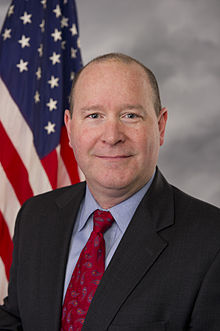Most Favored Nation” Pricing Doesn’t Put America First
By Larry Bucshon
JUNE 05 2025
The White House just announced a sweeping plan that could ultimately cap U.S. drug prices at the lower levels seen in other developed countries.
Administration officials have good intentions. They’re trying to shake up the plainly unacceptable status quo, in which American “citizens pay massively higher prices than other nations pay for the same exact pill, from the same factory, effectively subsidizing socialism abroad,” as President Trump put it.
But this proposal could largely eliminate the incentives for biotech companies to invest in new medicines, ultimately resulting in millions of premature deaths and lost jobs.
Foreign price fixing is a real problem. Most other wealthy countries artificially cap the cost of medicines. Those countries know they’ll get away with it, because as economist Craig Garthwaite explains in a recent Journal of Economic Perspectives paper, many foreign countries are “too small to be central to the drug development investment decisions of innovative firms.”
It’s entirely unfair that Americans are forced to shoulder the majority of the world’s research and development burden disproportionately.
But adopting other countries’ artificially low prices won’t fix the problem. It’d just make it impossible for biotech companies to recover their immense R&D costs — and thus destroy the incentives to develop new treatments altogether.
This isn’t just a theoretical concern. Europe used to dominate the global biotech industry for most of the 20th century, accounting for more than half of all new drugs developed — but America surged ahead by the late 1990s after European policymakers kneecapped their domestic innovators with price controls.
And while America historically resisted the temptation to impose price controls on medicines — at least until the Inflation Reduction Act — we have imposed them on medical devices before, with disastrous results. A new National Bureau of Economic Research paper examined what happened when Medicare slashed reimbursements for certain medical devices by more than 60%. Innovation fell off a cliff. Patent filings dropped 75%. New product launches fell 25%.
The executive order would replicate that mistake on a far larger scale. If it takes effect, companies will simply stop investing in most new drug research. It’s simple economics — kill the potential return, and you kill the risk-taking too.
That’d come at a massive human cost. New drugs have been responsible for more than a third of the decline in cardiovascular deaths since 1990. Now we’re seeing promising treatments for obesity, ALS, and rare genetic disorders.
Imagine telling families that future breakthroughs won’t be coming — because we chose to import foreign price controls.
There are smarter ways to lower prices without compromising innovation.
First, we must eliminate the waste in our healthcare system. More than half of every dollar spent on brand-name drugs doesn’t go to the companies that make them — it’s absorbed by a complicated supply chain with misaligned incentives that rakes in hundreds of billions from hidden rebates and markups, with no requirements to pass savings on to patients.
Second, we should tackle the foreign pricing problem through trade negotiations. Other wealthy nations should have to pay market rates for medicines if they want access to American markets.
The White House is right to be angry about foreign price fixing. But we need to fight it without destroying one of America’s most successful industries in the process.
FOOTNOTE: Larry Bucshon, MD, a cardiothoracic surgeon, served as the U.S. representative for Indiana’s 8th congressional district from 2011 to 2025. This was originally published in the Indianapolis Star.





